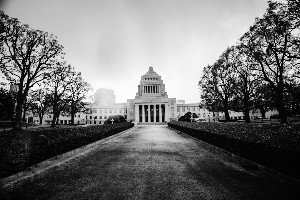Rosana Maria De Souza Alves
A experiência legislativa de (des)construção da BNCC
Introduction
A experiência legislativa de (des)construção da bncc. Examina a experiência legislativa da BNCC no Brasil, suas lógicas, resistências e concepções de currículo. Aborda reforma educacional, fracasso escolar e qualidade da educação.
Abstract
O artigo examina algumas lógicas mobilizadas durante a emergência da primeira versão da Base Nacional Comum Curricular (BNCC), firmadas através da vinculação entre fracasso escolar, reforma curricular e mudança, entendidacomo melhoria da qualidade da educação. A abordagem considerou que, para além das intencionalidades governamentais, o acontecimento histórico foi marcado por resistências, adesões parciais e produção de sentidos outros. Tais (re)ações emergiram no processo, a partir das experiências dos sujeitos envolvidos. Apesar da tentativa de forjar um consenso em torno da necessidade da BNCC, a análise deixou entrever a multiplicidade de concepções de escola e de currículo, perfazendo expectativas diferentes e contraditórias. Essas produções conferiram especificidade à experiência legislativa em questão. Palavras-chave: Fracasso escolar; Base Nacional Comum Curricular (BNCC); Experiência legislativa.
Review
This article, "A experiência legislativa de (des)construção da BNCC," promises a timely and critical examination of the legislative process surrounding the emergence of Brazil's Base Nacional Comum Curricular (BNCC). It aims to dissect the underlying logics that framed its inception, particularly the perceived links between school failure, curriculum reform, and educational quality improvement. By moving beyond mere governmental intentions, the abstract suggests a sophisticated approach that acknowledges the complex interplay of resistances, partial adhesions, and the production of alternative meanings by the subjects involved. This initial framing sets the stage for a valuable contribution to understanding a pivotal moment in Brazilian educational policy. The paper's principal strength lies in its commitment to a nuanced analysis that challenges monolithic interpretations of policy development. By foregrounding the "multiplicidade de concepções de escola e de currículo" that persisted despite efforts to forge consensus, the study effectively uncovers the inherent tensions and contradictions within the legislative experience. This approach enriches our understanding of how educational policies are not simply imposed but are actively (re)shaped and contested through the lived experiences and diverse perspectives of stakeholders. The focus on these "produções" that conferred specificity to the legislative experience is particularly compelling, offering a rich tapestry of the sociopolitical dynamics at play. While the abstract strongly signals a critical and insightful analysis, a potential avenue for further development, if not already addressed, could be a more explicit detailing of how these "multiplicity of conceptions" specifically manifested within the legislative discourse and decision-making processes, or how the "resistances" and "adesões parciais" impacted the final legislative outcome. Nevertheless, this article is poised to be a significant contribution to the literature on curriculum policy, educational reform, and the sociology of education in Brazil. Its critical perspective and attention to the subjective dimensions of policy-making render it highly relevant for researchers, policymakers, and educators seeking a deeper understanding of the complex forces shaping national curricula.
Full Text
You need to be logged in to view the full text and Download file of this article - A experiência legislativa de (des)construção da BNCC from Revista Contemporânea de Educação .
Login to View Full Text And DownloadComments
You need to be logged in to post a comment.
Top Blogs by Rating
Digital Rights: The Defining C...
By Sciaria
The Universe's Ghost Cities: W...
By Sciaria
The Art of Unlearning: Educati...
By Sciaria
Favorite Blog
The Gamification of Governance...
By Sciaria
Unlearn to Evolve: Your Superp...
By Sciaria
Unmasking the Bias Blind Spot:...
By Sciaria





